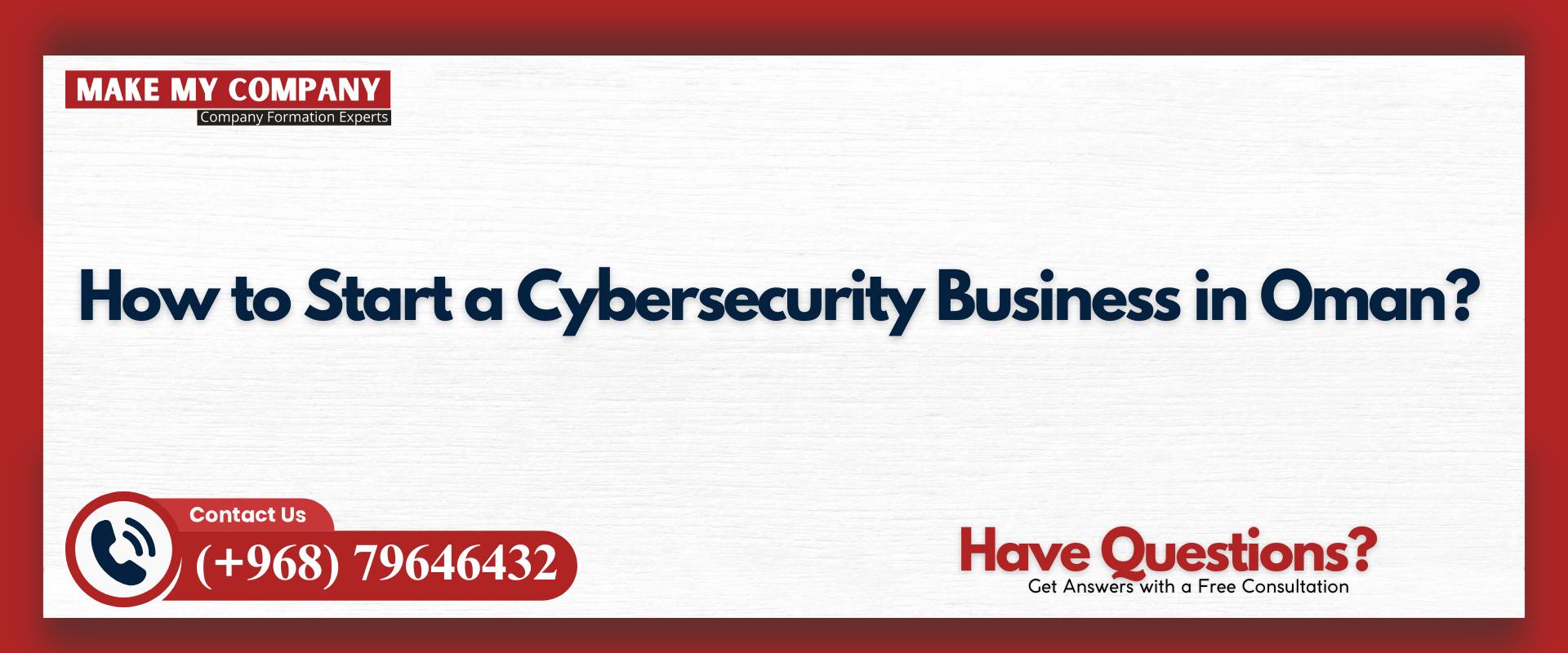The Sultanate of Oman is fast emerging as a regional technology hub in the Gulf, offering a promising environment for startups, software firms, and innovative digital ventures. As part of Oman Vision 2040, the country is accelerating its digital transformation, encouraging foreign investors and entrepreneurs to establish technology-driven businesses across sectors like fintech, AI, cybersecurity, and cloud computing.
If you’re planning to start a tech company or offer IT services in Oman, obtaining a Tech License in Oman is the first essential step. This license legally allows you to operate in the country, hire employees, open a corporate bank account, and participate in tenders and digital projects.
This detailed guide walks you through everything you need to know about the process, eligibility, costs, documentation, and benefits of getting your technology business license in Oman.
Table of Contents
Understanding the Importance of a Tech License in Oman
A tech license in Oman grants legal permission to operate a technology-oriented business under the supervision of the Ministry of Commerce, Industry, and Investment Promotion (MOCIIP). Whether you’re setting up a software development firm, IT consultancy, or digital solutions company, the license is your gateway to the Omani market.
What Is a Tech License in Oman?
A Tech License in Oman is an official authorization that allows individuals or entities to engage in technology-based activities such as software development, IT services, app design, cloud solutions, or digital marketing. It’s regulated by MOCIIP and sometimes in coordination with Oman’s Ministry of Transport, Communications and Information Technology (MTCIT).
Why You Need a Tech License in Oman
Operating without a license is illegal and can result in fines or business closure. A tech license also builds trust among clients, allows you to sign contracts, and helps you access funding opportunities and government initiatives supporting the digital economy.
Why Start a Technology Business in Oman?
Oman’s government actively supports digital innovation, making it one of the most business-friendly countries for technology companies in the GCC.
Strategic Location and Regional Access
Located between the Middle East, Africa, and Asia, Oman provides unmatched connectivity, helping tech companies expand their operations beyond borders with ease.
Government Support for Digital Transformation
Under Oman Vision 2040, the government is investing heavily in digitization, cybersecurity, AI, and IT infrastructure. Programs like Invest Easy and TechOman encourage local and international entrepreneurs to innovate.
Growing Demand for IT Solutions
From smart cities and cloud computing to fintech and automation, demand for technology solutions in Oman is rapidly growing, offering endless opportunities for tech startups and service providers.
Types of Tech Licenses in Oman
Depending on your business activity, you can apply for different types of technology licenses in Oman.
Software Development License
Covers businesses involved in creating, developing, and maintaining software applications and enterprise systems.
IT Consultancy License
For companies offering advisory services on technology implementation, digital transformation, and IT infrastructure management.
E-Commerce License
Authorizes the sale of goods and services through online platforms, websites, or mobile apps.
Fintech or AI Solutions License
For businesses specializing in financial technologies, blockchain, or AI-driven software solutions.
Cybersecurity License
Allows firms to provide cybersecurity audits, risk assessments, and digital protection solutions to government and private entities.
Legal Framework for Obtaining a Tech License in Oman
The Omani government follows a transparent, regulated approach to licensing to ensure digital companies meet professional and security standards.
Regulatory Bodies
- MOCIIP (Ministry of Commerce, Industry, and Investment Promotion) – primary authority for registration.
- MTCIT (Ministry of Transport, Communications and Information Technology) – oversees technology compliance.
- Oman Chamber of Commerce and Industry (OCCI) – for membership and trade registration.
Applicable Laws
All companies are governed under Oman’s Commercial Companies Law (Royal Decree 18/2019), which regulates company formation, ownership, and operations.
Step-by-Step Process to Obtain a Tech License in Oman
Here’s a complete roadmap to help you establish your technology company in Oman.
Step 1: Determine Your Business Activity
Identify your primary and secondary business activities based on your services — software development, IT consulting, or e-commerce. MOCIIP will classify your license accordingly.
Step 2: Choose a Legal Structure
You can register as one of the following:
- Limited Liability Company (LLC) – most common for foreign investors.
- Sole Proprietorship – for local entrepreneurs.
- Branch Office – for international companies expanding into Oman.
- Joint Stock Company – suitable for large-scale operations.
Step 3: Reserve Your Company Name
Select a unique trade name that reflects your business. It must comply with Oman’s naming regulations and cannot include religious or political references.
Step 4: Apply for Initial Approval
Submit your application via Invest Easy Portal, attaching details about your business plan, shareholder structure, and intended activities.
Step 5: Prepare Required Documents
- Passport copies of all shareholders
- Proof of address for shareholders and directors
- Memorandum of Association (MOA) and Articles of Association (AOA)
- Tenancy agreement for office space
- Business plan and feasibility study
- No Objection Certificate (NOC) if applicable
Step 6: Obtain Final License from MOCIIP
Once your documents are verified, you’ll receive your official Tech License. You can then register for VAT, hire staff, and open a corporate bank account.
Documents Required for Tech License in Oman
To streamline your application, prepare the following:
- Passport copies and visa pages of shareholders
- Company name reservation certificate
- Initial approval certificate from MOCIIP
- Lease agreement (Ejari equivalent)
- MOA and AOA notarized
- Board resolution (if applicable for foreign investors)
- Power of Attorney (if handled by a representative)
Ensure all documents are attested and translated into Arabic when required.
Cost of Obtaining a Tech License in Oman
The cost depends on your chosen legal structure and business activity.
| Expense Type | Estimated Cost (OMR) |
| Name Reservation | 25 – 50 |
| Commercial Registration Fees | 100 – 150 |
| Chamber of Commerce Membership | 80 – 150 |
| Office Lease | 300 – 600 per month |
| License Issuance | 200 – 400 |
| Miscellaneous (translation, notarization) | 100 – 200 |
On average, setting up a tech company in Oman costs between OMR 800 and 1,500, depending on your business scale.
Free Zones Offering Tech Licenses in Oman
Oman’s Free Zones are ideal for foreign investors seeking 100% ownership and simplified procedures.
Knowledge Oasis Muscat (KOM)
Specialized for IT, telecom, and tech startups. Offers advanced infrastructure, data centers, and co-working spaces.
Duqm Special Economic Zone (SEZAD)
Perfect for companies focusing on technology for logistics, oil & gas, and industrial innovation.
Salalah Free Zone
Great for tech businesses serving southern Oman or GCC markets. Offers tax exemptions and custom duty relief.
Sohar Free Zone
A multi-sector free zone with flexible lease options and strategic access to seaports.
Al Mazunah Free Zone
Ideal for small and medium businesses focused on IT hardware trading or service operations near Yemen’s border.
Benefits of Obtaining a Tech License in Oman
Starting a technology company in Oman offers multiple long-term benefits for entrepreneurs, investors, and startups aiming to enter the GCC’s growing digital economy. The country’s business-friendly laws, tax exemptions, and innovation-driven ecosystem make it an ideal destination for tech investors.
100% Foreign Ownership in Free Zones
Entrepreneurs can enjoy full ownership of their business when setting up in Omani Free Zones such as Knowledge Oasis Muscat (KOM) or Duqm SEZ. This provides complete control over company operations and profits without the need for a local sponsor.
Exemption from Customs Duties
Companies operating within Free Zones are exempt from import and export customs duties. This significantly lowers operational costs, especially for tech firms importing software equipment, hardware, or digital infrastructure components.
Tax Benefits and Zero Personal Income Tax
Oman offers an attractive tax regime with zero personal income tax and competitive corporate tax rates. This allows technology companies to maximize profitability and reinvest earnings into business growth.
Strategic Trade Access to GCC and African Markets
Oman’s location along major international trade routes provides direct access to key markets across the GCC, Africa, and Asia. Tech companies benefit from this connectivity, enabling regional expansion and cross-border business opportunities.
Easy Repatriation of Profits
Businesses in Oman can freely transfer profits and capital abroad without restrictions. This investor-friendly policy enhances financial flexibility and global scalability for foreign tech entrepreneurs.
Access to Digital Innovation Programs like TechOman
Initiatives such as TechOman and Oman Vision 2040 are driving digital transformation by supporting startups and providing funding, mentorship, and networking opportunities. This government support fosters a vibrant ecosystem for innovation and technology growth.
Corporate Tax and VAT Compliance for Tech Companies
Every tech company in Oman must comply with corporate taxation and VAT regulations.
Corporate Tax Overview
Oman imposes a 15% corporate tax on taxable profits. Small enterprises with limited turnover may qualify for reduced rates.
VAT Registration
Companies with an annual turnover exceeding OMR 38,500 must register for Value Added Tax (VAT). VAT compliance ensures smooth business operations and avoids penalties.
Record Keeping
All tech firms must maintain accurate accounting records for at least 10 years and submit audited financial statements annually.
Employment and Visa Requirements for Tech Firms
Tech firms in Oman must comply with visa regulations and Omanization policies, hiring qualified professionals while ensuring legal employment permits for expatriate and local staff.
Hiring Process
After obtaining your tech license, you can sponsor visas for your employees through MOCIIP and the Royal Oman Police (ROP).
Omanization Policy
Companies must comply with Omanization targets — hiring a minimum percentage of Omani nationals in technical and administrative roles.
Skilled Workforce Availability
Oman’s universities and training programs produce IT-qualified professionals, making it easier for businesses to find local talent.
Banking and Financial Setup
Once licensed, you can open a corporate bank account in Oman.
Required Documents
- Company license and CR certificate
- Shareholders’ IDs
- Proof of office address
- Board resolution approving the account
Recommended Banks
- Bank Muscat
- Oman Arab Bank
- HSBC Oman
- Bank Dhofar
These banks provide tailored solutions for startups, including online banking, merchant services, and trade finance.
Common Challenges in Obtaining a Tech License in Oman
While Oman offers great opportunities, entrepreneurs should be prepared for a few challenges:
- Documentation Complexity: Missing or incorrectly attested documents may delay approval.
- Arabic Translation: Some documents must be officially translated.
- Regulatory Updates: Stay informed about policy changes in tech and data protection laws.
Working with a professional consultant helps you navigate these hurdles smoothly.
Tips for a Smooth Tech License Application in Oman
- Conduct thorough market research before applying.
- Choose the right free zone or mainland jurisdiction.
- Ensure your business activity matches your trade license description.
- Keep all approvals and compliance documents organized.
- Work with a registered business setup consultant in Oman to avoid procedural delays.
Post-License Compliance for Tech Companies
After obtaining your tech license, businesses must adhere to annual compliance requirements:
- Renew your license annually.
- Update employee visas and contracts.
- Submit audited financial reports.
- Pay taxes and VAT on time.
- Maintain data security compliance under Oman’s ICT Law.
Growth Opportunities in Oman’s Tech Sector
The future of technology in Oman is promising, offering vast growth opportunities across different verticals.
Emerging Sectors
- Artificial Intelligence and Data Science
- Cloud Computing and Cybersecurity
- Fintech and Blockchain Applications
- IT Infrastructure and Managed Services
Government Partnerships
Oman encourages collaboration between tech firms and government agencies for smart city, logistics, and healthcare innovation projects.
Investor-Friendly Policies
Low barriers to entry and strong investor protection laws make Oman a stable choice for long-term growth.
Conclusion
Obtaining a Tech License in Oman is your gateway to participating in one of the GCC’s most promising digital economies. With its pro-business environment, modern infrastructure, and government-backed innovation initiatives, Oman provides fertile ground for startups and established tech firms alike.
From choosing the right license type to completing registration through MOCIIP, each step is crucial for building a compliant and successful tech business. Partnering with experts ensures the process is fast, transparent, and hassle-free.
For personalized guidance and support, contact Business Setup in Oman, your trusted consultants for seamless licensing and company formation services.
FAQs
What is a Tech License in Oman?
A Tech License allows you to legally operate a technology-based business, including IT services, software development, or digital consulting.
How much does it cost to obtain a Tech License in Oman?
The cost ranges between OMR 800 and 1,500 depending on your business structure, location, and documentation requirements.
Can foreign investors fully own a tech company in Oman?
Yes, 100% foreign ownership is allowed in Oman’s free zones such as KOM, Duqm, and Sohar.
How long does it take to get a Tech License in Oman?
Typically, it takes between 2 to 3 weeks, depending on the completeness of your application and approvals from authorities.
Do I need office space to start a tech business in Oman?
Yes, a physical or virtual office address is required for license registration and MOCIIP approval.
What are the post-license requirements for tech companies in Oman?
Annual renewal, tax filing, VAT compliance, and submission of audited financial statements are mandatory.









